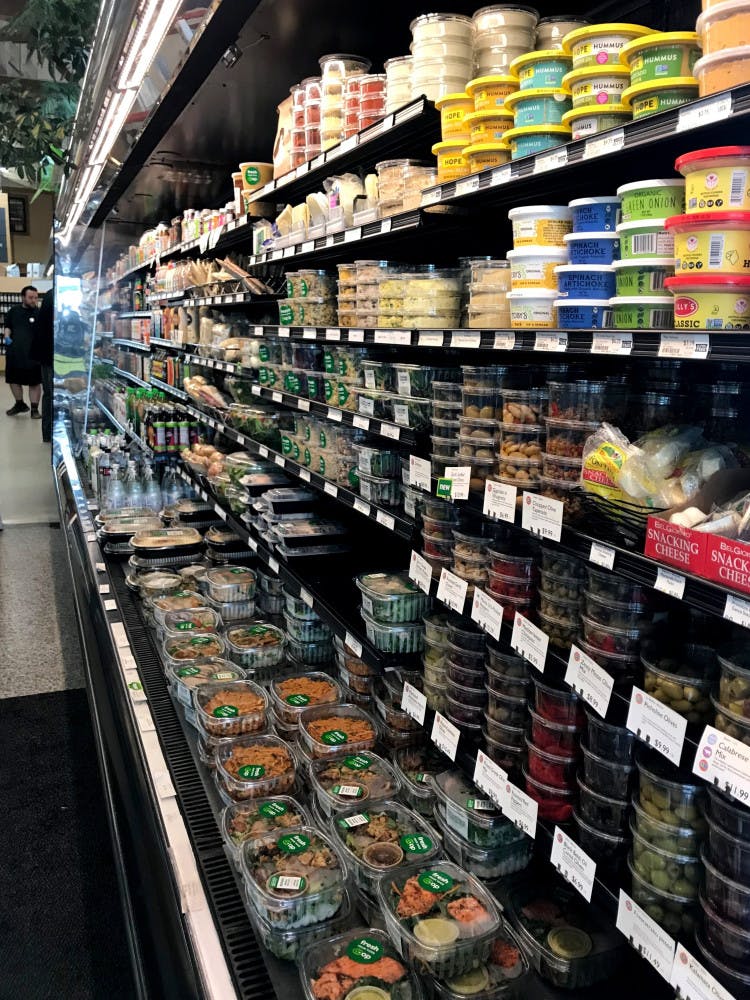Column by Makenna Marks
If you’ve been thinking about going vegan, this is the sign you’ve been waiting for. Not only does the lifestyle come with a plethora of health benefits like increased metabolism efficiency and a reduced risk of chronic diseases, you would also be dramatically reducing your carbon footprint. It’s a win-win situation.
Just by cutting meat out of our diets, our carbon footprint can decrease by up to 73%, according to the University of Oxford. The energy used to raise a single cow, butcher it and ship the meat out to a grocery store only for it to go to waste in the back of our fridge is tremendous.
Rebecca Bunn, an environmental science professor at Western, explained the effects of the meat industry on the planet.
“It takes a lot more energy to get one unit of energy out of a cow than a plant, because … animals are very high on the food chain and it takes a lot of energy to even produce them,” Bunn said. “Whereas if we ate directly at the bottom of the food chain, we’re reusing the energy of the sun more efficiently.”
Not only is eating meat energy inefficient, the meat industry itself damages the planet. Meat and dairy farms in particular produce a lot of methane gas, a heat-trapping greenhouse gas that contributes to climate change. Bunn compared climate change to being wrapped in a blanket.
“It’s not that the blanket is generating warmth,” Bunn said. “It's the warmth you're generating that is not escaping.”
Darcie Hill, a professor and registered dietician nutritionist at Western, explained the health benefits that come with a vegan or vegetarian lifestyle.
“If you have a plant-based approach to eating, such as vegetarian, vegan, flexitarian, Mediterranean, DASH, etc., you are able to get more of the micronutrients in that your body needs to function: from your metabolism efficiency, to your heart pumping, to your muscles recovering,” Hill said in an email.
Hill said an intake of plant-based foods can result in health-protective properties such as a reduced risk of chronic diseases.
“These health-protective properties likely come from an increased intake of plant-based foods that are generally richer in antioxidants and fiber, such as vegetables, fruit, whole grains, beans and legumes,” Hill said in an email.
But going vegan or even just vegetarian isn’t all sunshine and rainbows. Of course, it’s going to come with some challenges. Before you start talking yourself out of trying a plant-based lifestyle, Mars Wall has a few words of inspiration.
Wall is a second-year geography student at Western who runs a vegan food blog. She’s been a vegan for four years and posts her homemade vegan meals on her Instagram, @plant_based_mars.

For those worried about leaving behind some of their favorite non-vegan foods, Wall says it won’t matter to you all that much in just a few weeks.
“You will start to miss those foods,” Wall said. “But if you cut it off completely and you won't have it for a couple of weeks, you will forget the tastes and your taste buds will adjust.”
A common assumption about a vegan diet is that it’s more expensive than a diet with meat and animal products. This is not always the case.
“I think most people may save money since meat products tend to be pretty pricey, especially compared to beans, legumes, tofu and other plant-based protein options,” Hill said.
Wall also acknowledged the stigma that vegan foods might be more expensive. She said if you’re buying the packaged and processed vegan alternatives, the price can add up. But she’s also noticed that making your own food at home helps save money.
For those of us who still aren’t quite convinced to jump into a vegan lifestyle, Wall offers some advice.
“If you are wanting to improve your diet at all, you don't have to go full on vegan,” Wall said. “Just introduce more fruits and vegetables, whole grains, beans … just do that. By chance, you'll just end up eating less of that other shit.”
If you think you’re ready to fully immerse yourself in the world of veganism, you would be doing your body a favor all while helping the planet. If going vegan isn’t for you, that’s okay, too. Choosing to have even just one meatless meal a day will help reduce your carbon footprint. Take the time to think about it next time you go grocery shopping.





